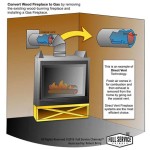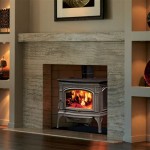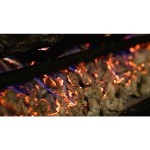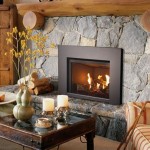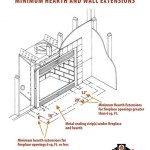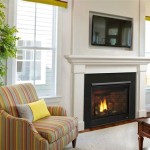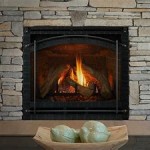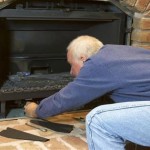Is Soapstone Good For Fireplaces In Georgia, USA?
The suitability of soapstone for fireplaces in Georgia, USA, is a topic that warrants careful consideration, given the state's specific climate and the characteristics of soapstone itself. Soapstone, a metamorphic rock composed primarily of talc, along with varying amounts of chlorite, magnesite, and amphibole, presents a unique set of properties that influence its performance as a fireplace material. Its heat retention capacity, durability, and aesthetic appeal contribute to its increasing popularity. However, factors such as cost, installation complexity, and regional variations in soapstone quality must be evaluated to determine its overall viability for Georgian homeowners.
The application of soapstone in fireplaces is rooted in its exceptional thermal properties. Soapstone possesses a high specific heat capacity, meaning it can absorb and store a significant amount of heat relative to its mass. This characteristic allows a soapstone fireplace to heat up more slowly than those constructed from other materials like brick or concrete. However, once heated, the soapstone radiates heat steadily and evenly for an extended period, even after the fire has died down. This provides a more consistent and comfortable warmth within the living space, reducing temperature fluctuations often associated with traditional fireplaces. The gradual release of heat can be particularly advantageous during Georgia's mild winters, where sustained, moderate warmth is often preferred over intense blasts of heat.
The use of soapstone in fireplace construction is not without its limitations. Its relatively soft nature, due to the high talc content, makes it susceptible to scratches and dents. While these imperfections often contribute to the stone's rustic charm, some homeowners may find them undesirable. Moreover, soapstone can be more expensive than other fireplace materials, potentially impacting the overall budget of a remodeling or new construction project. The weight of soapstone also necessitates a robust foundation and structural support, adding to the complexity and cost of installation. Furthermore, sourcing high-quality soapstone can be a challenge, as the mineral composition and physical properties can vary significantly depending on the quarry location.
Georgia's climate, characterized by hot, humid summers and mild winters, plays a crucial role in determining the suitability of soapstone fireplaces. The slow release of heat from soapstone can be advantageous during the cooler months, providing a comfortable and consistent warmth. However, during the warmer months, the residual heat from the fireplace could potentially contribute to unwanted temperature increases within the home. Effective insulation and proper ventilation are necessary to mitigate this effect. Furthermore, the humidity levels in Georgia can impact the performance and longevity of the soapstone. While soapstone is generally non-porous and resistant to moisture absorption, prolonged exposure to high humidity could potentially lead to surface degradation or the growth of mold and mildew.
Heat Retention and Radiative Properties
The primary advantage of using soapstone in fireplaces resides in its superior heat retention capabilities. Soapstone's high density and specific heat capacity enable it to absorb and store a considerable amount of thermal energy. This characteristic translates into a fireplace that heats up gradually but radiates heat steadily and evenly over a long duration. Unlike materials like brick or metal, which tend to heat up and cool down rapidly, soapstone provides a more consistent and comfortable heat source. This is especially beneficial in Georgia's climate, where moderate and sustained warmth is often preferable to intense bursts of heat. The slow release of heat also contributes to improved energy efficiency, as less fuel is required to maintain a comfortable temperature within the living space.
The radiative properties of soapstone further enhance its effectiveness as a fireplace material. Soapstone emits heat primarily through radiation, which involves the transfer of thermal energy through electromagnetic waves. This type of heat transfer is more efficient and comfortable than convection, which relies on the circulation of heated air. Radiated heat warms objects and surfaces directly, rather than simply heating the air, resulting in a more uniform and pleasant warming effect. In contrast to convective heat, radiative heat does not create drafts or contribute to dust circulation. The combination of high heat retention and efficient radiative heat transfer makes soapstone an excellent choice for creating a warm and inviting atmosphere in a Georgian home.
The ability of soapstone to retain heat for extended periods also contributes to its economic and environmental benefits. By reducing the frequency of refueling, soapstone fireplaces can help lower heating costs. This is particularly relevant in Georgia, where the cost of heating fuels can fluctuate significantly. Furthermore, the reduced fuel consumption translates into lower emissions of greenhouse gases and particulate matter, contributing to improved air quality. Soapstone fireplaces can therefore be a more sustainable and environmentally friendly heating option compared to traditional fireplaces or other heating systems that rely on fossil fuels.
Durability and Maintenance Considerations
Soapstone, while relatively soft, possesses a surprising degree of durability, especially when properly installed and maintained. Its resistance to thermal shock, the stress caused by rapid temperature changes, is particularly noteworthy. This makes it well-suited for fireplace applications, where it is constantly subjected to high temperatures and fluctuating conditions. Unlike some other natural stones, soapstone is also resistant to cracking and spalling, which are common problems in fireplaces. Its non-porous nature prevents water absorption, minimizing the risk of damage from moisture or freeze-thaw cycles, although this is less of a concern in Georgia's relatively mild winters.
The maintenance requirements of soapstone fireplaces are generally straightforward. Regular cleaning with a mild soap and water solution is typically sufficient to remove soot and other debris. Avoid using harsh chemicals or abrasive cleaners, as these can damage the surface of the stone. Occasional oiling with mineral oil or a specialized soapstone wax can help to enhance the stone's natural color and protect it from scratches and stains. While soapstone is relatively soft, scratches and dents can be easily repaired with sandpaper or a specialized soapstone repair kit. The patina that develops over time often adds to the stone's character and charm, but if desired, the stone can be refinished to restore its original appearance.
The longevity of a soapstone fireplace depends on several factors, including the quality of the stone, the installation techniques, and the level of maintenance. With proper care, a soapstone fireplace can last for decades, providing reliable and efficient heating for generations. However, it is essential to choose a reputable installer who is experienced in working with soapstone. Proper installation is crucial to ensure the structural integrity of the fireplace and to prevent problems such as cracking or shifting. Regular inspections and maintenance can help to identify and address any potential issues early on, extending the lifespan of the fireplace.
Cost and Installation Requirements in Georgia
The cost of a soapstone fireplace in Georgia can vary considerably depending on several factors, including the size of the fireplace, the type of soapstone, the complexity of the design, and the installation costs. Soapstone is generally more expensive than other common fireplace materials, such as brick, concrete, or cultured stone. The higher cost is due to the relative scarcity of soapstone, the specialized quarrying and fabrication processes, and the transportation costs. The type of soapstone also influences the price, with rarer or more aesthetically pleasing varieties commanding a premium. Custom designs and intricate detailing will further increase the cost of the fireplace.
Installation costs can also be a significant factor in the overall expense of a soapstone fireplace. Soapstone is a heavy material, requiring a strong foundation and adequate structural support. This may necessitate reinforcing the existing floor or building a new foundation, adding to the cost of the project. The installation process itself is also more complex and labor-intensive than with other fireplace materials. Cutting, shaping, and fitting the soapstone requires specialized tools and expertise. It is crucial to hire a qualified and experienced installer who is familiar with the unique properties of soapstone. Poor installation can lead to problems such as cracking, shifting, or inefficient heating.
Homeowners in Georgia should obtain multiple quotes from different contractors before committing to a soapstone fireplace installation. It is important to carefully compare the quotes, paying attention to the type of soapstone being used, the scope of the work, and the warranty offered. In addition to the initial cost, homeowners should also consider the long-term operating costs of the fireplace. While soapstone fireplaces can be more energy-efficient than traditional fireplaces, they may require more frequent cleaning and maintenance. It is also important to factor in the cost of fuel, especially if the fireplace is being used as a primary heating source. By carefully considering all of these factors, homeowners can make an informed decision about whether a soapstone fireplace is the right choice for their needs and budget.

Four Reasons Why Soapstone Stoves Are Worth The Investment We Love Fire

Four Reasons Why Soapstone Stoves Are Worth The Investment We Love Fire

5 Great Reasons To Choose A Soapstone Wood Stove We Love Fire

5 Great Reasons To Choose A Soapstone Wood Stove We Love Fire

Church Hill Soapstone Fireplace Surrounds And Mant Grey From United States Stonecontact Com

Churchill Soapstone 3cm Honed Fireplace Surround From United States Stonecontact Com

Soapstone Fireplace Surround From United States Stonecontact Com

Nunnauuni Soapstone Fireplace Emits Heat For A Long Time

Soapstone Cottage Heater Maine Wood Heat Co Inc

Making A Statement Designer Kirsten Grove S Timeless Soapstone Fireplace Polycor Inc

